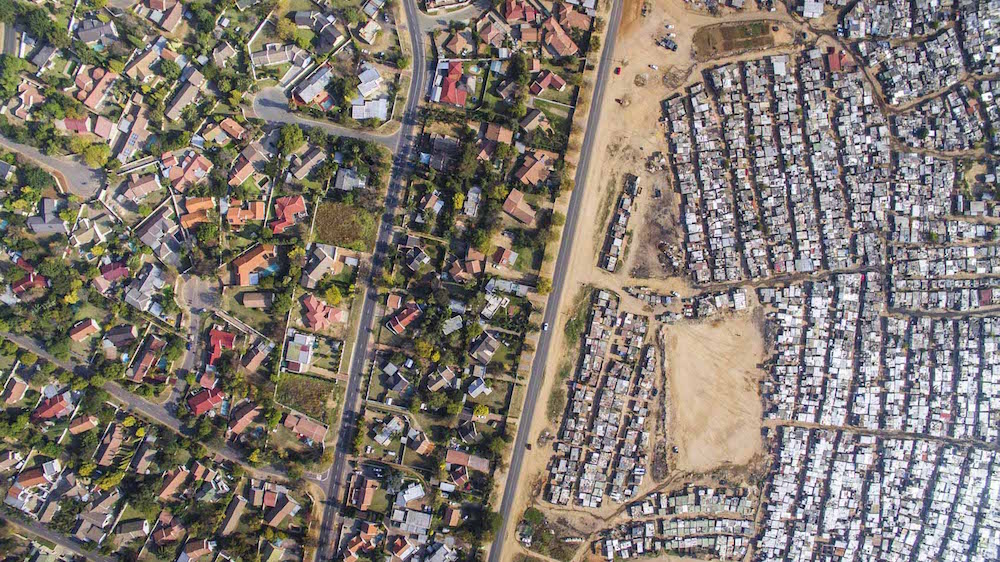PARI and GCRO invite you to a brown bag presentation by Benjamin Bradlow
Regimes of Urban Public Goods Distribution: Governing Johannesburg, 1990-2016
Date: 30 August 2017
Time: 13.00-14.00
Venue: GCRO, 6th Floor University Corner, 11 Jorissen St, Braamfontein
RSVP to Mpho Mohapi: mmohapi@pari.org.za
Photograph by Johnny Miller

South Africa’s social basis for transition to democracy in the late 1980s and early 1990s comprised an alliance of trade unions with neighborhood-based organizations that fought for urban rights. As a result, South Africa is rare among middle-income nations for constitutional provisions that decentralize administration and public finances in order to realize socio-economic rights.
The concept of an “urban regime” — institutionalized forms to solve coordination problems in cities — isuseful to analyze governance in Johannesburg in comparative perspective. I consider the case of Johannesburg through a historical investigation of the post-Apartheid governance of three types of urban public goods: housing, sanitation, and public transportation. I draw from ongoing work conducted between 2015 and 2017, including archival research and over 100 field interviews.
I argue that two key dimensions of the city’s “regime” explain why Johannesburg has struggled to effectively integrate previously excluded areas into these material infrastructures of the city. First, the “embeddedness” of civil society and the state as a countervailing mechanism to ties between local authorities and private real estate developers. Second, the “cohesion” of the institutional sphere of the state across three dimensions — a) geographical units of administration within the city, b) line agencies at the city scale, and c) city, state/provincial, and national scales.

